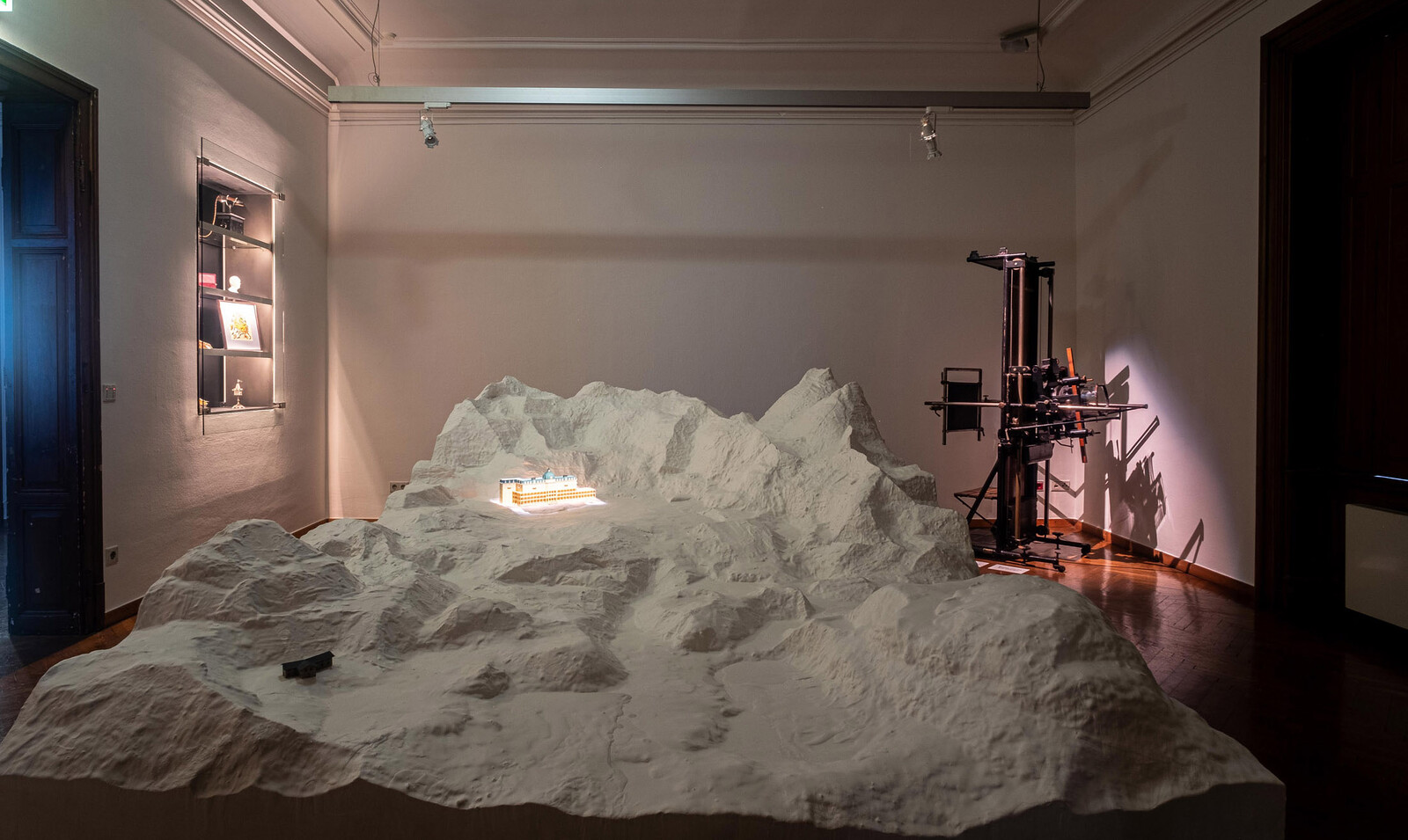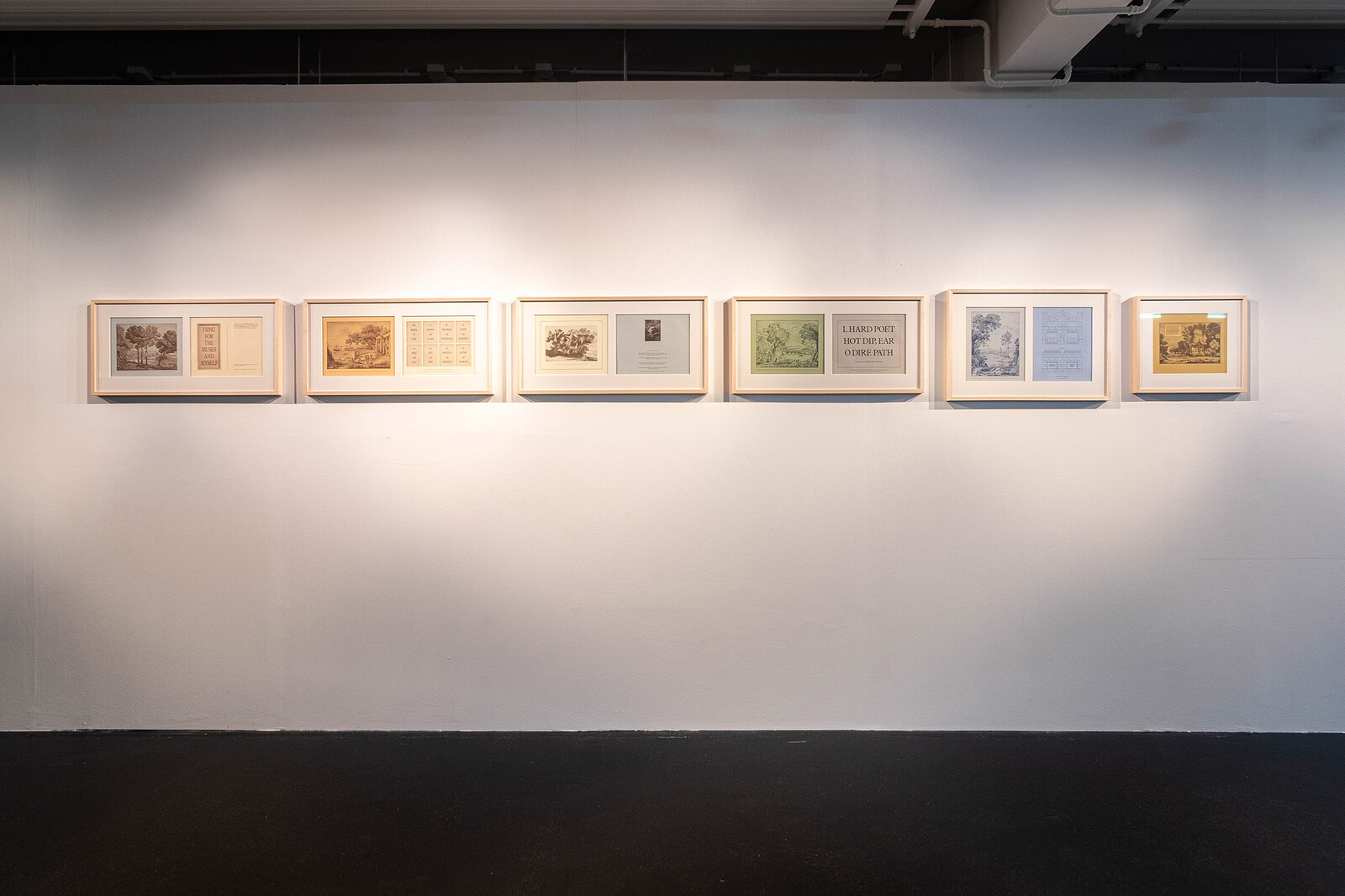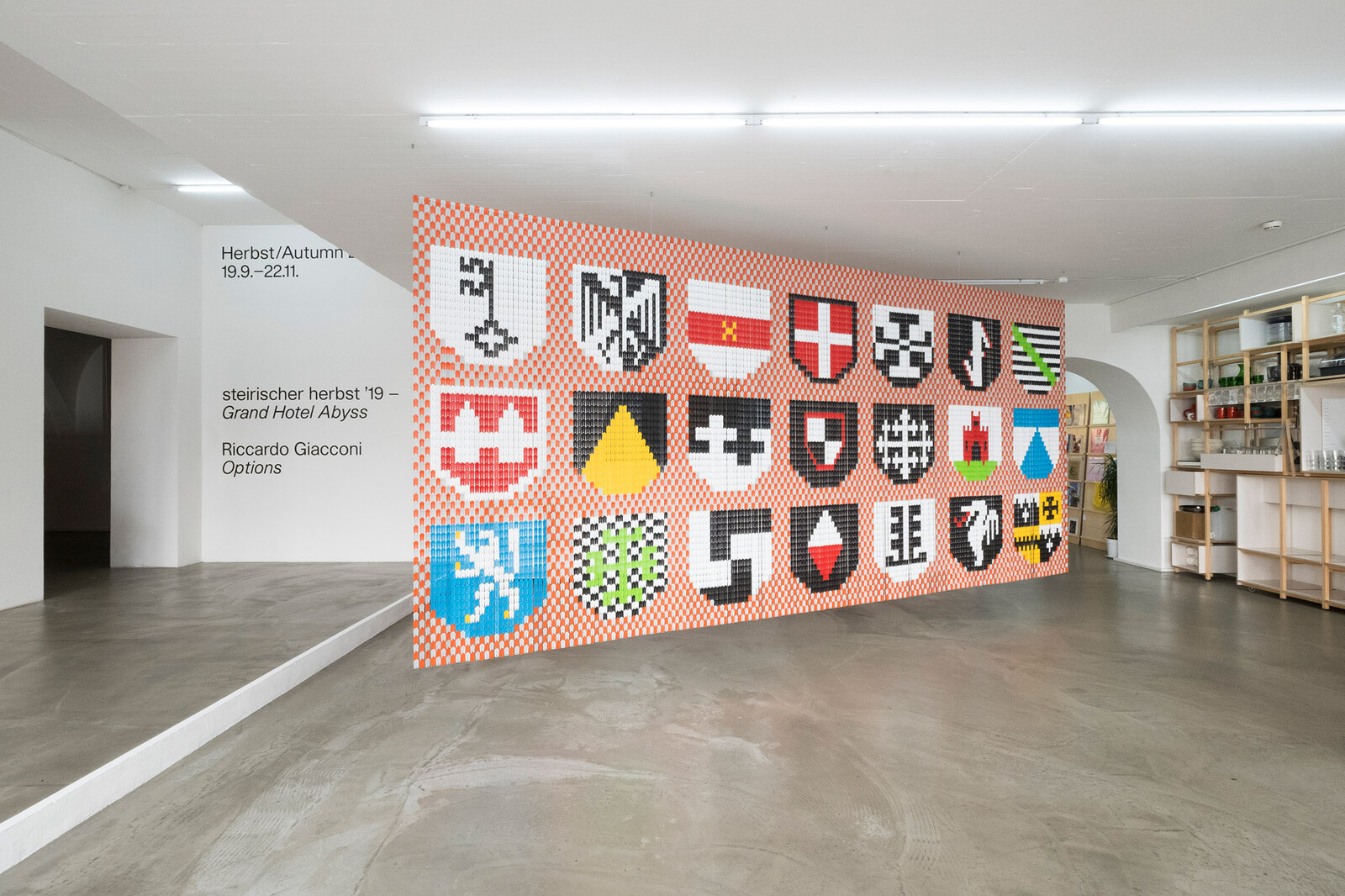The “Grand Hotel Abyss” is home to a cast of strange and varied characters, each sheltering from the raging incoherence of today’s world. Whether this lavish destination is a plush cover for paralysis or a temporary abode that opens to glimpses of something new is the knife-edged tension that the theme for this edition of the festival creates.
Director and chief curator Ekaterina Degot’s opening speech at Graz’s stately Landhaushof engaged the courtyard’s imperialist architecture to reflect on the imbrication of art, power, and hedonism at the core of the increasingly troubled European project. Her words announced the red thread weaving through the festival’s program, which balances the spectacular and performative alongside research-driven exhibitions and discussions, as well as ephemeral interventions, throughout Graz and the surrounding Styria region.
The opening extravaganza presented a carnivalesque counterpart to Degot’s trenchant speech, performatively reenacting the seductions of a lifestyle driven by pleasure, or Genuss in German. Genuss is something of an Austrian ideology, and visitors were invited to partake in this local variety of the value placed on aesthetic, culinary, and bodily enjoyment by the global elite—a commentary on the geopolitics of contemporary art running through the broader program. Festivities were hosted in the Neo-Renaissance enclave of the Congress Graz, where critical sensibilities were plied away with the delights of champagne and chocolates—the latter a costly version of the Austrian delicacy Mozartkugeln, reimagined by Elmgreen & Dragset to host the visage of the famously Austria-loathing Austrian writer Thomas Bernhardt (Echte Grazer Bernhardkugeln [Real Graz Bernhardballs], 2019). After immersing myself in the neon lights and baubles installed in Cibelle Cavalli Bastos’s vision of a post-apocalyptic Las Vegas–inspired hotel room, Las Venus Resort Palace Hotel’s Cabaret Lounge Splice Download (2019), I rushed to catch a one-minute performance of Faust I in performance collective Das Planetenparty Prinzip’s Instant Culture Express Service (2019). I paused to be mesmerized by bodybuilders hoisting elaborate ceramic lamps in Jakob Lena Knebl and Markus Pires Mata’s perplexing yet pleasing vision of animate sculpture, The Style Council (2019), before attending performances in the opulent Stefaniensaal concert hall. Within this delirious whirlwind, Jule Flierl’s Dissociation Study (2017—2019) stood out by puncturing the Gesamtkunstwerk effect with a ventriloquized rendition of the “Liebestod” from Richard Wagner’s Tristan und Isolde (1865). Singing atop a statue’s shoulders while her facial expressions performed an independent choreography, Flierl induced a canny disjunction between the immersive environment and the viewers’ conscious experience of it.
“Grand Hotel Abyss” is a trope coined by Georg Lukács in a 1933 text excoriating the European left for meeting the rising tide of fascism with decadent resignation. This luxurious retreat boasts elaborate facilities for “intellectual intoxication and asceticism or self-flagellation.” Here the “danse macabre of worldviews plays out” as a “jazz band both pleasant and thrilling, providing the guests with some rest after their exhausting daily regimen at the spa.”1 This Hotel Abyss overlooked scenes of Austria’s impending election, not to mention a host of other political, social, and ecological meltdowns farther afield. Is the festival’s response to this situation a glittering mirror play of knowing self-critique, or could something else break through?
A more sinister view of pleasure emerged in Keti Chukhrov darkly absurdist satire, Global Congress of Post-Prostitution (2019), staged by Guram Matskhonashvili. The play tells of a conference on sex work as a political-philosophical practice, hosted in post-Soviet Zugdidi, Georgia. The local organizers invite star international theorists to participate and are exploited by them in bizarre ways, sending all characters into spirals of delusion in their atomized pursuit of “surplus enjoyment.” Sporadic moments of reality break through, captured in phrases that flash across the multi-channel screen on stage: “We do not think the way that we think we think”; and in a backward acrostic, “Free us from any communist claims whatsoever.” The characters, echoing the Orpheus narrative around which the piece revolves, ignore these insights in their mutually destructive pursuit of desire and power. The production’s salient premises are regrettably blurred by murky dramaturgy and unnecessary length, yet the play effectively eviscerates the false premises of establishing emancipatory practices on desire within a capitalist horizon.
Alongside extremes of decadence and nihilism, the festival balances playful ephemerality with dense mediations on history, narrative, and memory. Nedko Solakov’s Lost Cold War Spies (2019) features clandestine figurines perched throughout six of Graz’s “grand hotels,” inviting visitors on a scavenger hunt between exhibitions. “The Life and Adventures of GL,” an “artistic-curatorial” project by Degot, Steirischer Herbst’s senior curator David Riff, and their collaborator, Dublin’s Project Arts Centre curator Lívia Páldi, presents a variety of Lukács’s personal objects alongside quotes, inviting viewers to imaginatively re-narrate the philosopher’s life. The festival’s contingent of British artists is ironically displayed in the Künsterhaus, echoing rumors that the building was gifted by the British occupying forces in an effort of soft diplomacy; here Ian Hamilton Finlay’s prints and poetry from 1973–2003 excel with their charmingly wry observations on militarism and Neo-Classicism’s fascist inclinations. The inscription of history within landscape is a broader concern: Daniel Mann and Eitan Efrat’s richly layered installation Rn (2019) tells of a “healing tunnel” now used for therapeutic treatments in an Austrian spa town, but originally dug with forced labor by the Nazis in pursuit of gold. Viewers up for morning walks in the Stadtpark are rewarded by attending “Counterpositions,” a program of artist talks, performances, and sculptural responses to monuments addressing Austria’s complexly problematic relation to its National Socialist past.
If faced with the self-defeating choice between the “dictatorship of pleasure,” as the guidebook’s curatorial note describes the Hotel Abyss, and the authoritarian regimes gaining strength worldwide, Steirischer Herbst ultimately rejects both in seeking to preserve a minor space for art. With Riccardo Giacconi’s Options (2019), for instance, this produces artistic strategies valuable for resisting the spectacles of fascism’s visual language. Giacconi’s installation—encompassing audio, photo and film-based installations as well as ephemera and posters—explores the World War II history of South Tyrol, an Italian province whose German-speaking inhabitants were offered the miserable choice of emigrating to the German-ruled territory (including Austria) across the northern border or integrating with Italian fascism at home. On entering the installation, viewers face a tapestry of local heraldic crests that deconstructs the history and mechanics behind images of Heimat [homeland]. Elsewhere, the artist places projected archival footage adjacent to a film in which blurred images accompany a recording of anonymous stories from historical events. By divorcing images and sound, these pieces seek forms of historical narration that resist identitarianism. The Hotel Abyss is a temporary abode—what matters are the knowledge and tools one can smuggle back into this world.
Frank Benseler, ed., Revolutionäres Denken: Georg Lukács: Eine Einführung in Leben und Werk (Darmstadt and Neuwied: Hermann Luchterhand Verlag, 1984), 189. Trans. by David Riff. Cited in “A Pleasant Apocalypse,” Steirischer Herbst 2019 Guidebook.













